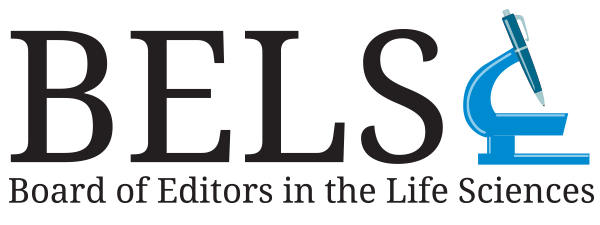Q: What is diplomate status?
The Board of Editors in the Life Sciences (BELS) awards diplomate status to board-certified editors who pass the diplomate examination. Achievement of diplomate status indicates that an editor has demonstrated exceptional editorial proficiency, reflecting greater mastery of editorial skills and knowledge than required for certification as an Editor in the Life Sciences (ELS).
Q: What are the benefits and obligations of diplomate status?
An editor who achieves diplomate status may use the initials ELS(D) after his or her name and will receive a digital badge. This designation indicates a high level of skill and pre-eminent professional standing. Like board certification, diplomate status entails the obligation to sustain the high professional standards of BELS.
Diplomate editors may choose to be BELS members by paying dues. Certified and diplomate BELS members pay the same annual dues. In addition to the privileges accorded to all BELS members, diplomate members are eligible to serve as examiners in the diplomate program or on the Diplomate Examination Development Committee.
Q: Who is eligible to take the diplomate examination?
Any BELS-certified editor (ELS) is eligible to apply for candidacy for diplomate status starting 2 years after passing the certification examination. An applicant must also document 6 years of experience as a manuscript editor in the life sciences.
Candidacy for diplomate status lasts 2 years, beginning when the member's application is accepted. A candidate may renew his or her candidacy for another 2 years by submitting a fee of $100.
Q: What does it cost to achieve diplomate status?
The total fee is $400 ($100 for application and $300 for portfolio evaluation).
Q: What is the procedure for achieving diplomate status?
A BELS-certified editor who wishes to take the diplomate examination must first be accepted into candidacy. Once accepted, the candidate submits a portfolio for evaluation. If the portfolio is judged acceptable, the candidate is awarded diplomate status. If the portfolio is judged unacceptable, the candidate may submit a revised portfolio as long as he or she maintains candidacy.
Applying for candidacy: An eligible certified editor may complete the application at any time. A summary of editing experience, two letters of reference or other documentation of at least 6 years of editorial experience, and a nonrefundable application fee of $100 must be included. On acceptance, the candidate will be sent instructions for preparing and submitting the portfolio.
Portfolio: A candidate may submit a portfolio to BELS at any time with a completed form requesting evaluation and a nonrefundable evaluation fee of $300. The registrar will notify the candidate of the examiners’ decision within 8 weeks.
If, in the judgment of the examiners, a portfolio shows exceptional proficiency in scientific editing according to BELS standards, the candidate will be awarded diplomate status. If the examiners determine that a portfolio is unacceptable, the candidate will receive a summary of the reasons and will be invited to submit a new portfolio. There is no limit on the number of portfolios a candidate may submit.
Q: What is the portfolio?
The portfolio consists of the following elements:
- A total of 4,000–7,500 words of scientific text and at least one table with data that the candidate has edited. The material submitted must clearly show the candidate’s editorial contributions in all the categories specified in the Portfolio Guide. The portfolio may include material from more than one manuscript. It may contain text from any kind of publication, such as journal articles, book chapters, grant proposals, instructional materials, or film scripts. A portfolio manuscript judged by the registrar to be too long or too short will be returned for revision and submission of an additional $25 fee.
- A description of the circumstances under which the submitted material was edited.
For full details, please review the Portfolio Guide.
Q: How is the portfolio evaluated?
Participation in the diplomate process is confidential. The identity of candidates is known only to officers of BELS who are directly involved in the processing of examinations and not to examiners. Copies of the portfolio are distributed to three diplomate editors who are appointed as examiners for the individual candidate. The examiners' evaluations are conducted according to guidelines developed by BELS. Each portfolio is identified to them only by a number; the identity of candidates is known only to officers of BELS who are directly involved in the processing of examinations. The result of each examination is given only to the individual candidate, except that BELS publishes the names of those who achieve diplomate status.
Q: Who are the examiners?
Examiners are appointed from among BELS members who have achieved diplomate status. Members serving on the Appeals Committee may not serve as examiners.
Q: Can the examiners’ rulings be appealed?
Yes. The diplomate program includes procedures to ensure that portfolios are evaluated fairly.
Q: How should I prepare for the diplomate examination?
Careful study of the instructions in the Portfolio Guide is recommended. Any questions about the instructions should be directed to the BELS office (contact us).
Q: Once I earn my diplomate, how do I maintain my ELS(D) credential?
Learn more about BELS Certification Maintenance here.
